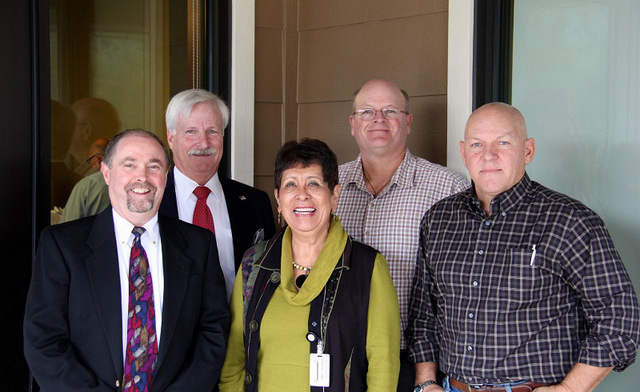San Andreas, CA…The Calaveras County Water District Board of Directors named District 5 Director Jeff Davidson as Board president at its October 12 meeting. District 3 Director Bertha Underhill was named vice president. Davidson, who was formerly vice president, replaces District 2 Director Strange, who was not present at Wednesday’s meeting. The Board also replaced Director Strange on the Legal Affairs Committee. These actions were consistent with Board direction from a special meeting called on October 6 regarding Director Strange’s cannabis cultivation activities. See CCWD’s release about the Oct. 6 meeting here.

In other Board news, the District’s construction crew recently completed the rehabilitation of a 200-foot-long spillway at its regulating reservoir, which serves a drinking water supply for customers in West Point and Wilseyville. By using District staff to make the much-needed repairs, the project was completed at a cost of only $22,501. This is a significant savings for the District when considering bids from outside contractors ranged from $70,000 to $90,000.
CCWD General Manager Dave Eggerton also informed the Board that District staff members were able to work with the Regional Water Quality Control Board to secure an amendment to the District’s permit for wastewater treatment operations in Copperopolis. Over the past 10 years, the District has made multiple improvements to the plant in order to meet state standards. However, meeting state-mandated nitrate limitations continued to pose challenges, and it appeared the District would have to spend millions to upgrade the plant in order to achieve compliance. But through collaboration with the Regional Board over the past year, the District was able to reach a solution that allows compliance standards to be met without making costly upgrades.
“This is great news,” Eggerton said. “I want to thank staff for the fantastic work they did. We’re also grateful to the Regional Water Quality Control Board for working with the District to reach a mutually beneficial solution that saves our ratepayers millions of dollars.”


